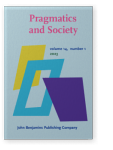Vol. 14:1 (2023) ► pp.117–142
“Jerry was a terrific host!” “You were a brilliant guest!”
Reciprocal compliments on Airbnb
Expanding the research investigating compliments in CMC genres, this study explores reciprocal compliments from consumers and service-providers on Airbnb, a major tourism platform. Specifically, the study examines distribution of compliments in both guest reviews of Online Experiences (a virtual tourism service) and hosts’ responses to those reviews, focusing on compliment topics, their syntactic realizations, and their associated intensification strategies. Despite some similarities with prior research on CMC compliments with respect to the overall frequency and general expression of compliments, we also identified several differences related to compliment reciprocity as well as a greater tendency toward more formal language use in this professional digital context. These differences are likely related to the different relationships among participants, as well as different user goals when communicating on commercially-oriented sites versus social networking sites, demonstrating the need to expand the scope of CMC compliment research to include a broader range of platforms.
Article outline
- 1.Introduction
- 1.1Compliments
- 1.2Compliments and compliment responses in online settings
- 1.3Airbnb
- 2.Methodology
- 2.1Dataset: Airbnb’s online experiences reviews
- 2.2Coding procedure and data analysis
- 2.3Approaches to quantification
- 3.Results
- 3.1Distribution of compliments
- 3.2Topics
- 3.3Syntactic realizations
- 3.4Intensification strategies
- 4.Conclusions
- Acknowledgments
- Notes
-
References
